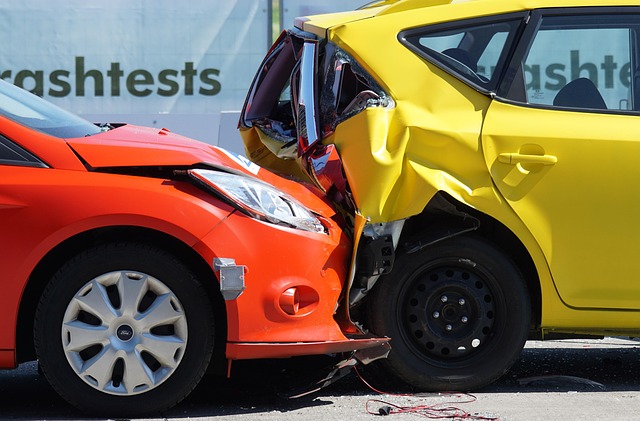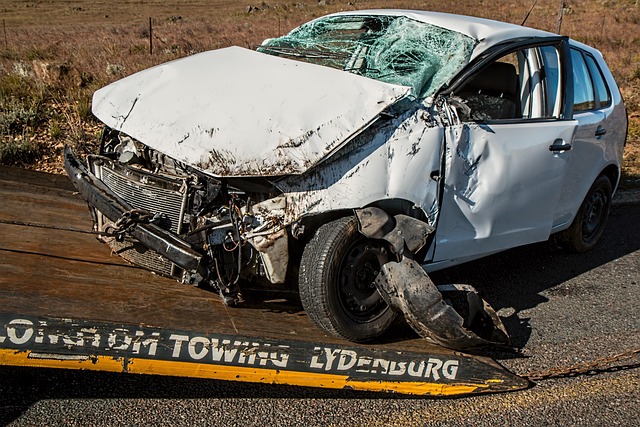Liability Insurance is a critical shield for businesses in transportation and vehicle services, covering financial losses and legal liabilities from accidents, damages, or injuries related to company vehicles. It includes medical expenses, property damage, and legal fees, providing a safety net against significant risks. Understanding liability insurance offers peace of mind, ensures operational continuity, and protects businesses from devastating financial burdens. Key components include bodily injury liability, property damage liability, and coverage for uninsured/underinsured motorists. Common exclusions to be aware of include war, terrorism, natural disasters, and intentional acts. Selecting suitable coverage involves evaluating industry risks, vehicle types, existing policies, and potential gaps. Liability insurance is essential in today's competitive business environment to protect against legal complexities and economic burdens.
Professional auto liability coverage is an indispensable asset for businesses operating commercial vehicles. This comprehensive guide delves into the intricacies of liability insurance, elucidating its crucial role in protecting against potential risks and financial burdens. From understanding key components to navigating exclusions, this article equips business owners with insights to make informed decisions. Discover how the right liability insurance can safeguard your company in real-world scenarios, ensuring peace of mind on the road ahead.
Understanding Professional Auto Liability Coverage: A Comprehensive Guide

Professional Auto Liability Coverage is a crucial component of any business involved in transportation or vehicle-related services. This type of insurance protects against potential financial losses and legal liabilities arising from accidents, damages, or injuries caused by company vehicles during work operations. It’s not just about covering repairs; it encompasses a wide range of responsibilities, including medical expenses for injured parties, property damage, and even legal fees associated with lawsuits.
Understanding this coverage is essential for business owners as it provides a safety net against significant financial risks. Liability Insurance offers peace of mind, ensuring that your business can navigate legal complexities and economic burdens without facing insurmountable costs. It’s designed to protect assets, maintain business continuity, and ensure fair compensation for those affected by incidents involving company vehicles.
Why Is It Essential for Businesses with Commercial Vehicles?

In today’s business landscape, professional auto liability coverage is more crucial than ever for companies operating commercial vehicles. With increasing legal requirements and potential risks associated with vehicle operation, having comprehensive liability insurance acts as a shield against financial loss and legal repercussions. It protects businesses from claims related to accidents, property damage, or personal injuries caused during the course of their operations.
For instance, if a delivery truck owned by a company is involved in an accident while on the road, liability insurance can cover medical expenses, legal fees, and potential settlements. Without adequate coverage, a single incident could cripple a business with substantial financial burden and damage its reputation. Thus, investing in professional auto liability insurance is a strategic decision to safeguard assets, maintain operational continuity, and ensure long-term success.
Key Components of Auto Liability Insurance Policies

Liability insurance for automobiles is a crucial component of any professional’s risk management strategy, offering protection against potential claims and damages arising from vehicle-related incidents. These policies are designed to safeguard businesses and their owners by covering legal costs and compensation in the event of accidents or injuries caused by their vehicles. The key components typically include bodily injury liability, which covers medical expenses and losses incurred by injured parties, and property damage liability, compensating owners or occupiers for vehicle-related property loss or destruction.
Additionally, many policies offer coverage for uninsured or underinsured motorists, providing an extra layer of protection in cases where the at-fault driver lacks adequate insurance. This is especially important in today’s world, where accidents involving uninsured vehicles are not uncommon. Furthermore, auto liability insurance may include business-specific endorsements, such as coverage for hired or non-owned vehicles, which can be essential for companies using multiple cars in their operations. Understanding these components is vital for businesses to ensure they are adequately protected against potential risks and liabilities associated with vehicle use.
Common Exclusions and Limitations to Be Aware Of

When considering Liability Insurance for your automotive business, it’s crucial to understand the common exclusions and limitations that come with policies. Many policies exclude liability for certain types of damage or incidents, such as losses due to war, terrorism, or natural disasters, unless specifically added as endorsements. Additionally, some policies may not cover damages caused by intentional acts, like fraud or embezzlement, or by employees acting outside the scope of their duties.
Another limitation to be aware of is the policy’s limit of liability, which sets the maximum amount the insurance company will pay out for a claim. This can vary widely depending on the policy and the type of coverage chosen. Understanding these exclusions and limitations is vital in ensuring that your Liability Insurance provides adequate protection for your business against potential risks and claims.
How to Choose the Right Coverage for Your Business Needs

Selecting the appropriate Professional Auto Liability Coverage is a pivotal step in safeguarding your business against potential risks and financial losses. It’s crucial to understand that every operation has unique requirements, so there’s no one-size-fits-all solution. Begin by assessing your specific industry and operations; some sectors may demand more coverage than others due to inherent risks. For instance, construction companies might need higher limits due to the potential for significant property damage or injuries.
Next, consider the types of vehicles used in your business and their associated risks. Are you operating large trucks that could cause extensive damage if involved in an accident? Or perhaps you have specialized machinery with complex mechanical parts? These factors influence the level of protection needed. Additionally, review your current insurance policies and coverage amounts to identify gaps or areas where an upgrade is necessary to ensure comprehensive protection for your business and clients.
Real-World Scenarios: Protecting Your Company with Adequate Insurance

In the fast-paced world of auto repairs and maintenance, businesses face a myriad of risks. A simple mistake or an unforeseen accident can lead to significant legal repercussions and financial losses. Liability insurance is your shield against these potential pitfalls. For instance, consider a scenario where a customer drives away with their vehicle, only to report later that same day that they experienced a mishap due to a previously unnoticed mechanical issue. If the incident results in property damage or personal injury, your company could face costly lawsuits and medical bills. With comprehensive liability insurance, such claims are covered, protecting your business from potential bankruptcy and ensuring its longevity.
Another real-world example involves a mechanic who, while working on a client’s vehicle, accidentally damages an expensive part. Without adequate insurance coverage, the repair costs and potential legal fees could cripple a small business. Liability insurance provides financial peace of mind by covering these types of incidents, allowing you to resolve issues swiftly without the burden of overwhelming expenses. By investing in this crucial aspect of your business strategy, you safeguard your company’s future and protect its reputation.
